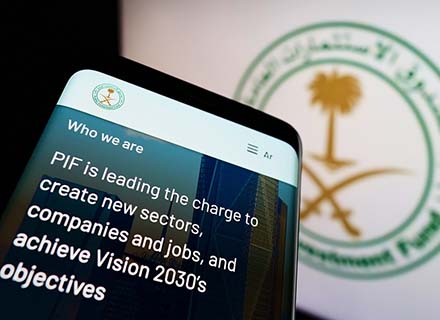Saudi Arabia’s Public Investment Fund (PIF) is “working with Morgan Stanley on a potential deal to buy 36% shares of Saudi Binladin Group,” a Bloomberg report stated.
The USD 700 billion wealth fund is considering buying part/all of the Ministry of Finance’s 36% share in the multinational construction conglomerate headquartered in Jeddah. The development comes at a time when the PIF supervises gigaprojects like NEOM, as part of the “Vision 2030” economic diversification agenda. The real estate sector has been envisioned by the Kingdom’s government as one of the growth engines in realising the roadmap.
PIF invested USD 1.3 billion in 2023 to buy holdings in four local construction companies to boost the Kingdom’s building economy.
Saudi Binladin Group, which operates in construction, power, and industry, has built over 15 Saudi Arabian buildings, including the Makkah Holy Mosque extension and Riyadh’s Al-Faisaliah Tower.
The group also built Kuala Lumpur Airport, Sharm El-Sheikh Airport in Egypt, Sharjah International Airport, and Fujairah International Airport in the UAE.
SBG worked on Al-Shoaiba Power Plant and Power Plant No.9 (PP9), which generates 5,980 megawatts on 3.2 million sqm.
Binladin Group’s other industrial projects included BCS Ready Mix Factory and Bahra Industrial Complex.
PIF said earlier in February 2024 that it had acquired 40% of Zamil Offshore Co., a major Saudi offshore support vessel operator.
The wealth fund said this deal was part of its aim to develop the Kingdom’s energy base.
PIF also bought 6.60% of Koei Tecmo in January 2024, up from 5.56%. PIF became Nintendo Co.’s largest outside investor in February 2023, increasing its holding from 7.08% to 8.26%.
The firm also bought 23.8% of Middle East Paper Co., a key regional paper maker and recycler, recently. PIF has also announced plans to ramp up its annual capital deployment to USD 70 billion after 2025. Managing a massive portfolio across industrial verticals exceeding USD 700 billion, PIF directs over 70% of its investments within Saudi Arabia.
However, as per Yasir Bin Othman Al-Rumayyan, governor of the sovereign wealth fund, the fund would allocate 20% to 25% of its resources to global ventures, with the figure set to grow progressively.
PIF has also pitched the Kingdom as a prospective hub for artificial intelligence activity outside the United States, citing the Gulf nation’s energy resources and funding capacity.
“We are fairly well positioned to be an AI hub outside of the US. AI will consume a lot of energy and we are the global leader when it comes to fossil fuel energy and when it comes to renewable energy,” Al-Rumayyan stated further, while reiterating that the world’s biggest oil producer also had the “political will” to make AI projects happen and it was ready to deploy spend big to nurture the technology’s development.
As per the analysts, data centres will likely be the core part of Riyadh’s strategy to capitalise on the booming demand for generative AI, which requires vast amounts of processing power.
Also, Al-Rumayyan told the media that about 40% of PIF’s international investments were in the United States.

